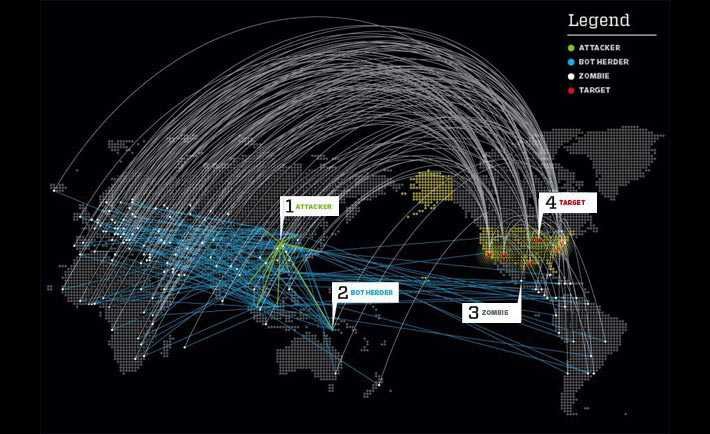The online ones attacks type Distributed denial-of-service or otherwise DDOS are becoming more and more frequent and numerous businesses έχουν αρχίσει να συνειδητοποιούν ότι χρειάζονται services mitigation of attacks to protect their websites and services in general.
DDOS attacks are carried out by several as it is a very easy attack, not requiring any special knowledge, despite the use of a program. From time to time, they have been used by companies to disturb competition, by cybercriminals for extortion, and jinglers as a form of protest.
These cyber-attacks can lead to significant losses, especially if they take place against a website of a company based there for its business activities. However, the aggression attacks do not look at the type of business as they are only for a reason. Influence political or business decisions.
For example, a few years ago, Anonymous began a massive DDOS attack on PayPal when the company decided to stop donating to WikiLeaks. PayPal has claimed that it has spent enough money to recover from the attack but to implement protection mechanisms. Of course the company did not change its decision because of the attack it received from the hackers.
Several also large DDOS attacks started in 2012 when the government of USA, shut down Megaupload. The websites of the US Department of Justice, the FBI, the White House, HADOPI, the RIAA, the MPAA, the Anti-Piracy Federation of Belgium, and also the websites of Warner Music Group stopped working.
Although these blows were one of the biggest DDOS attacks, no one moved in, since Megaupload never came back.
Shortly after the DDOS attacks on Megaupload, members of the Anonymous movement filed an online protest at the White House asking the Obama administration to make the cyber attacks a legitimate form of protest.
It is not something different from any "occupation" of protest. "Instead of a group of people standing outside a building and occupying the space, they have their computer and occupy a website to slow down its services for a short period of time," the activists said at the time.
However, DDOS attacks are still considered illegal. Many Anonymous and other activists still use it because it is difficult for the authorities to locate the attackers, but as history has shown, this particular way of protest does not directly affect any decisions.
Although there have been several attacks on government websites, it seems that most state actors are not really interested in whether their website remains offline for a few hours or more.
On the other hand, DDOS attacks often seem to be an effective way of raising public awareness. The media usually cover cyber-attacks, especially those aimed at the government or other high-profile websites. The fact is quite encouraging as mobilization is brought about through awareness.
For example, the recent OpKillingBay campaign, which aimed to put an end to the killing of dolphins in Japan, was quite successful in terms of raising awareness. Hacktivists carried out DDOS attacks on a bunch of websites related to these activities in Japan, and while no damage was caused or anything changed, people from all over the world expressed their support via social networks.
Of course, let us mention that the protest of the sofa does not seem to have helped anyone until today.






